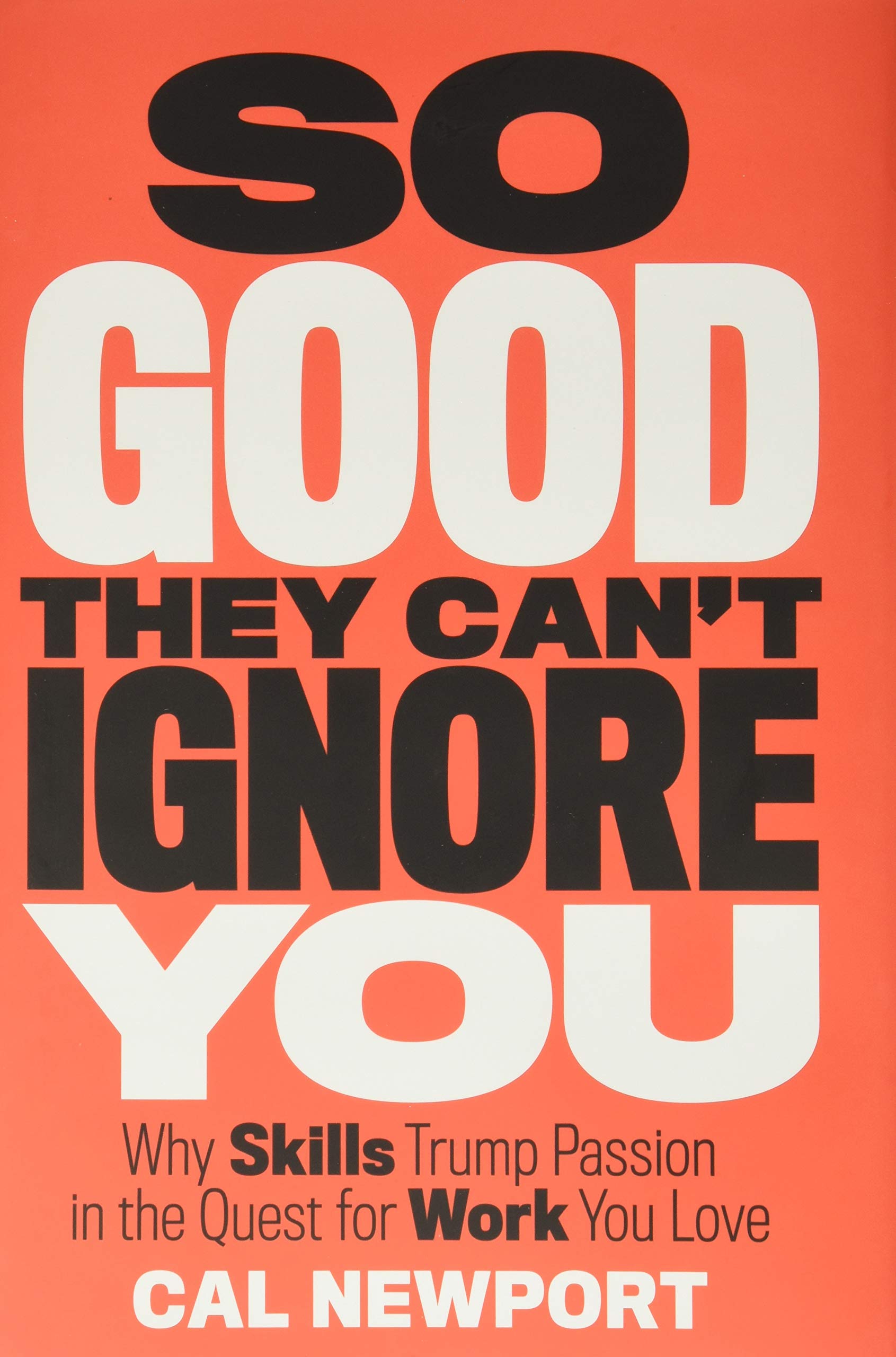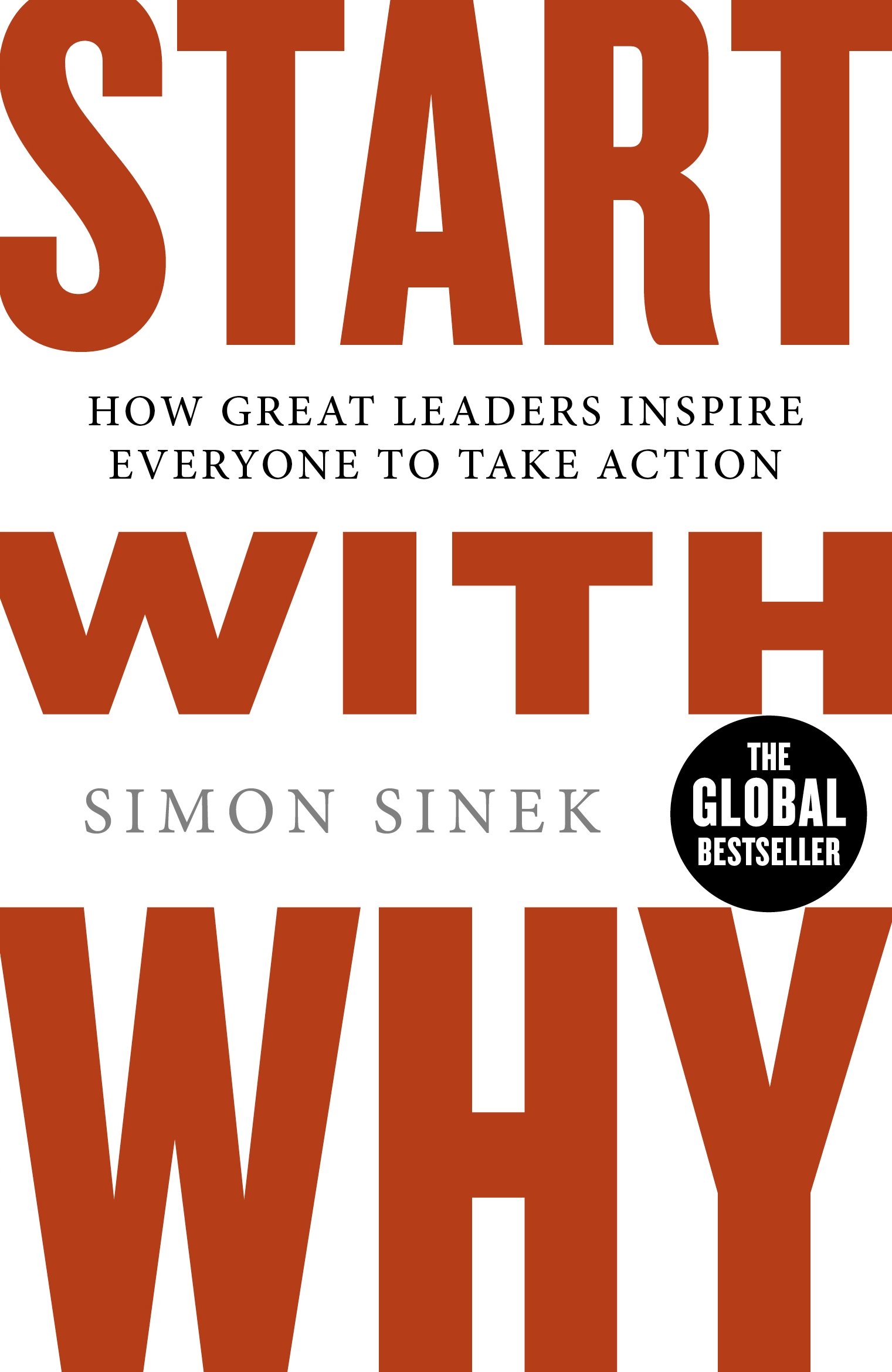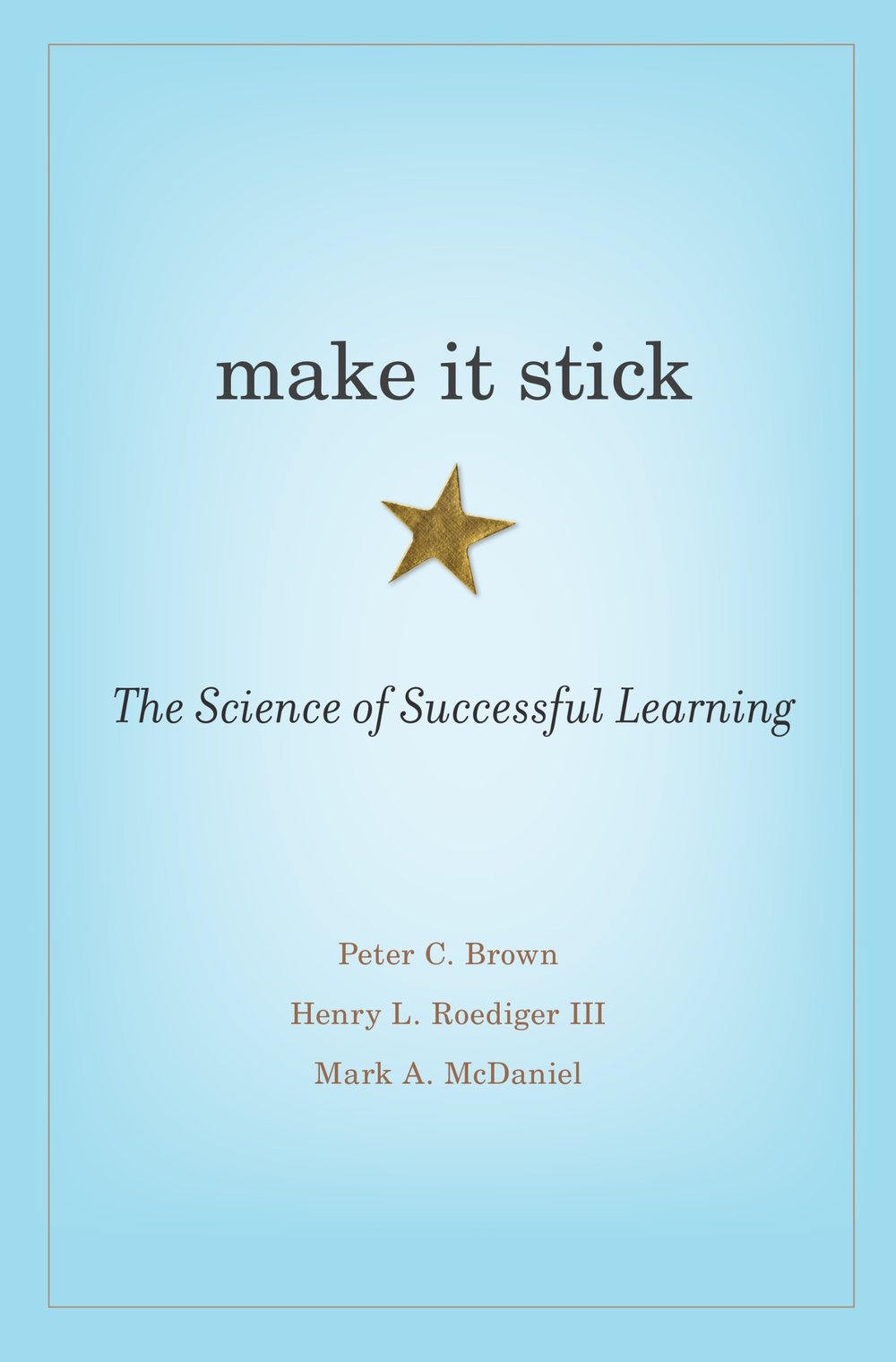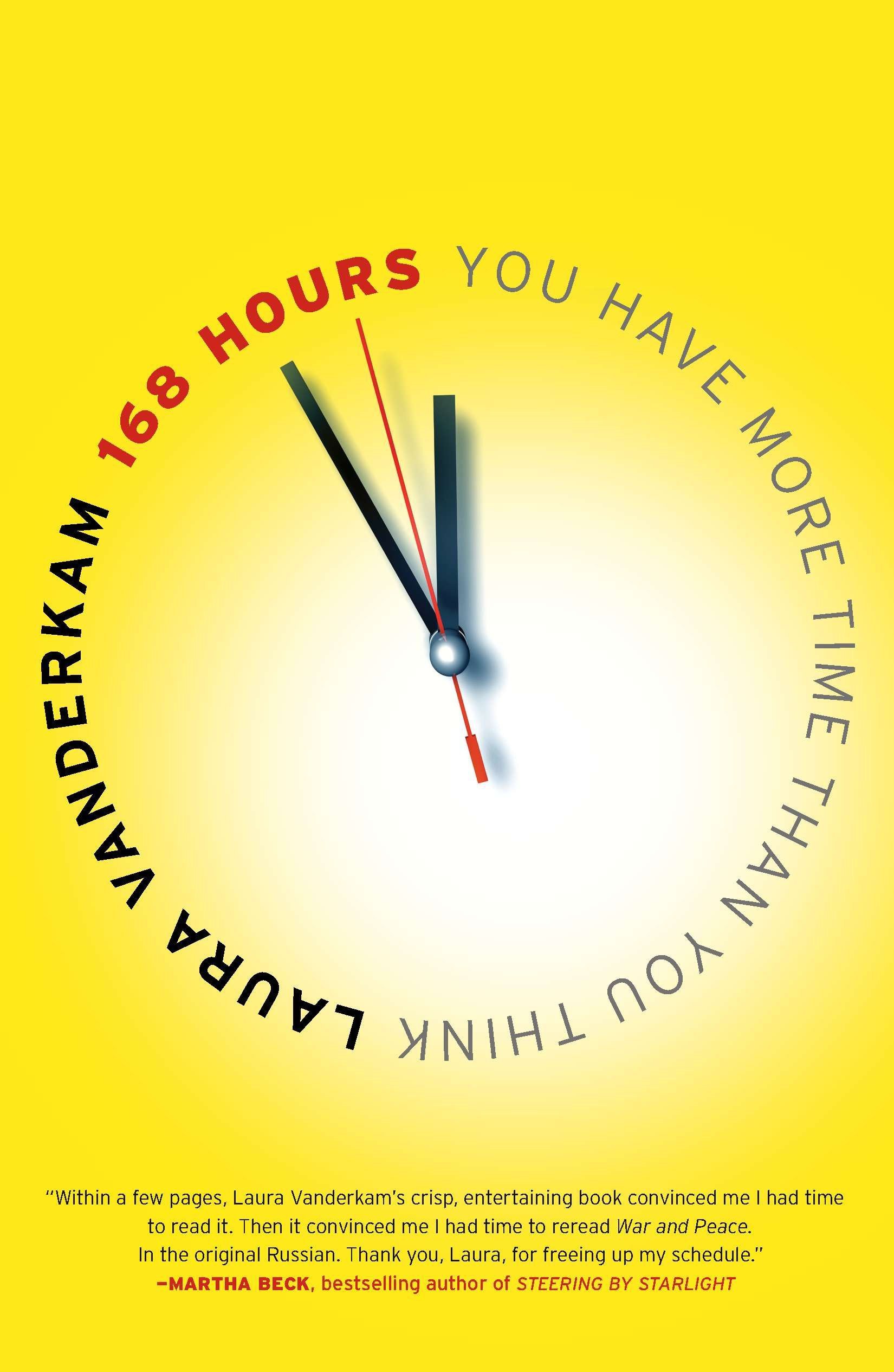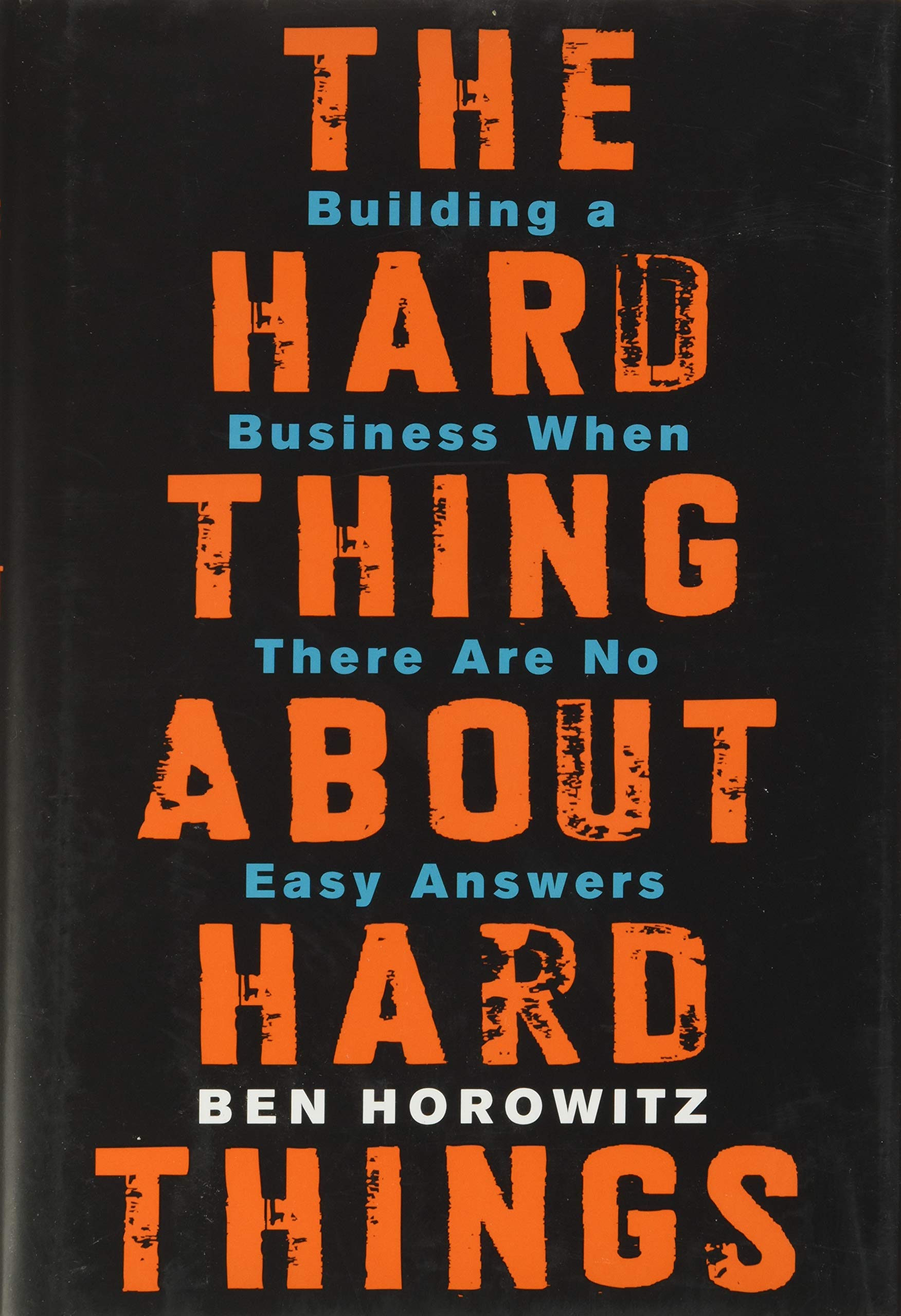Develop unique skills to create a meaningful career.
So good they can’t ignore you by Cal Newport offers a novel and well-articulated perspective on career development. If I could recommend only one career book to anyone, this would be it.

The central message is that, rather than the frequently spouted advice “do what you love”, you should first focus on developing rare and valuable skills. This is hard and takes time. But these will allow you to create a great job that is fulfilling. Such jobs are rare and are often more complex in their origins than they may appear at the finished picture.
Key points:
- “Don’t follow your passion”
- Following your dream/passion as a job gives the idea that your ideal job is out there that will be nothing but contentment and fulfilment
- More likely to lead to serial disappointment and job-hopping
- Examples does raise the question of when to stick and when to move on and keep trying new things – discussed in more depth in Seth Godin’s The dip
- When looking at people who are well into/at the end of their career and very passionate about it, it is easy to think that they started with that desire and followed it; it is almost always more complex at the beginning and the love for the work evolves
- Describing your work as a passion or a ‘calling’ comes with mastery of skills and duration spent doing it
- Most passions have nothing to do with work
- Key factors that make people feel good about work:
- Autonomy: over your schedule and that you make a difference
- Competence: feeling you’re proficient
- Relatedness: being connected to others at work
- These tend to come later in jobs, and accumulate with time
- Courage is not the only thing between you and a dream job. It is more complicated than that and requires unique skills that take time to develop.
- Following your dream/passion as a job gives the idea that your ideal job is out there that will be nothing but contentment and fulfilment
- “Be so good they can’t ignore you”
- Concentrate on what skills you can develop in providing value to work (‘craftsman mindset’) rather than what your job offers you (‘passion mindset’)
- Amazing jobs are rare, so you need to have unique and valuable skills to create such a job
- Use work/jobs to hone these skills
- Generated through deliberate practice
- This doesn’t mean slaving away at a job you hate, especially if:
- No chance of developing particularly unique skills that will make you stand out
- You don’t think the job is a benefit to society
- You dislike the people you work with
- “Turn down a promotion”
- Having control over what you do (and how to achieve it) may be the most important characteristic of great jobs
- Need to have enough career capital to deliver output when you get autonomy
- When you are good enough to get promoted, consider staying at the same level but instead getting more autonomy – this is generally associated with a better quality of life
- However employers tend to resist as its not benefit to them
- You need evidence people will pay for what you will offer, in order to get more control in your job
- “Think small, act big”
- It is really difficult to have an overarching mission to organise your life around, but very useful if you do
- It requires you to have significant career capital first
- First you must get to the cutting edge before you can see what might come next
- Take small projects in the general direction of your mission (‘little bets’) and course-correct where needed
- Your mission needs to stand out as remarkable (think Purple cow)
- It is really difficult to have an overarching mission to organise your life around, but very useful if you do
I do think there is still something to be said for the self-analysis involved in books that advocate following your passion. However, Newport’s writings clearly are much more grounded in reality. I do think it is critical to consider the point that, if a job makes you totally miserable then it’s probably not worth continuing, even if you are learning new skills. (Provided you’re absolutely sure it is the job that is the cause.)
More books like this:
- The dip by Seth Godin
- What colour is your parachute? by Richard Bolles
- Purple cow by Seth Godin
- Mastery by George Leonard
- Mastery by Robert Greene
- Outliers by Malcolm Gladwell
- Finding your element by Ken Robinson
Here are one, two, and three other summaries/reflections on this book.
